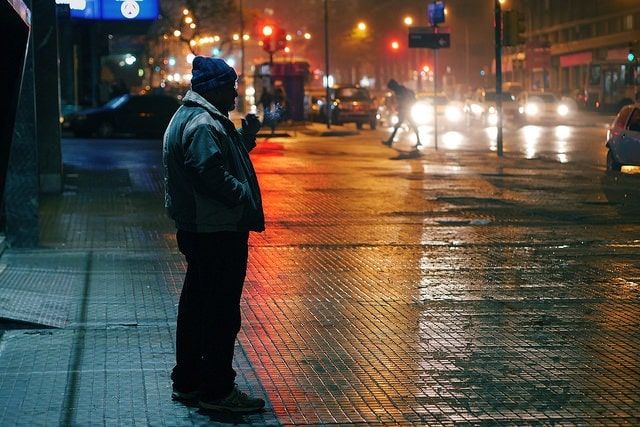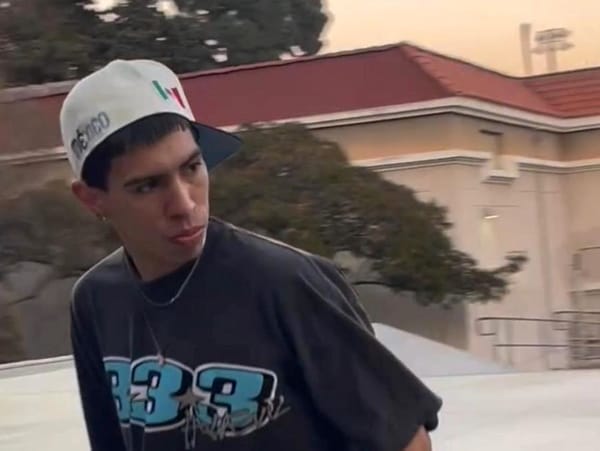The demand grows to impose a strong hand against insecurity in Uruguay
Uruguay had an increase of 45.8% in homicides in 2018, which raised its rate to 11.8 deaths per 100,000 inhabitants.

For many years, Uruguay was a haven of tranquility in South America, but the wave of violence that has shaken it in the last year was of such magnitude that for some analysts and international organizations the country suffers an "epidemic" of homicides. Uruguay had an increase of 45.8% in homicides in 2018, which raised its rate to 11.8 deaths per 100,000 inhabitants, and although this is not comparable to that of the most violent nations of the continent, it is an unpublished record in this country, which also exceeds that of the majority of South America.
Beyond the figures, the news of murders became habitual: what once moved, today is routine. Graciela Barrera chairs an association of victims and militates against a phenomenon that seems uncontainable. She will never forget one day in 2009 when she was on her poultry farm and was told that her son Alejandro, who was distributing chickens, had just been killed by thieves. Today it is dedicated to supporting the increasingly numerous victims of crime and visiting prisons to try to make the criminals understand the pain they generate and help recover them.
Other Uruguayans are in favor of a drastic change. In less than a year, 407,000 people signed to convene in October a plebiscite that incorporates life imprisonment into the penal code for cases of rape and murder of minors, assassins, and multiple murderers. It also intends to grant participation to 2,000 soldiers in public security, eliminate the anticipated freedoms for serious crimes and allow night raids if a judge authorizes them.
To call a plebiscite, it is required that you sign 10% of the voter registry, a figure surpassed by those who propose these measures, almost one-sixth of the electorate. The high number of wills gathered is even more significant considering that the campaign was promoted by Senator Jorge Larrañaga, a minority within the opposition National Party, and counted on the rejection of the government and the indifference of most of the leaders. opponents.
According to official figures, in 2018 there were 414 homicides, a record that had an impact on public opinion in a country with approximately 3.5 million inhabitants. Violent deaths had been 284 in 2017 and were already on the rise. The registry of Uruguay is low if compared with that of Mexico, Brazil, and El Salvador -with 27, 30, and 50 violent deaths per 100,000 inhabitants respectively-, but it already doubles that of Argentina, triple that of Chile and many believe that it will get worse. The police chief of Montevideo, Mario Layera, said that the nation is heading to be as violent as El Salvador because it fell into an "anomie" and the laws are no longer met.
The increase in robberies and homicides gained space in daily conversations and the presidential campaign in October. "The other day I went to a tailor shop to try on a suit and the subject was that people are saturated," said political scientist Adolfo Garcé. Throughout the country, you can see the posters of candidate Edgardo Novick asking for "zero tolerance for crime." For the political scientist specializing in security issues Diego Sanjurjo, today Uruguay stopped integrating the group of countries with low homicide rates and is migrated to a group with "medium or high average" rates.
He believes that the radical increase in the number of robberies is behind the rise in homicides. For the specialist, the other cause of the "epidemic" is given by a political error of the governing left coalition Frente Amplio. "In all of Latin America, the circles of crime containment have been breaking down: family, neighbors, education, but unlike Argentina or Chile, in Uruguay, the security forces as the last barrier also failed, the ruling force underestimated the crime".
For Sanjurjo, the reaction to this underestimation explains that Larrañaga achieved so many signatures. Sitting in his office, the senator says that many people told him: "I do not vote for you, but I'm going to sign you." "People are fed up," Larragaña said, adding that "many signed because this is the strongest claim against crime and the government's security policy." The authorities of the Ministry of the Interior did not accept to make statements.
Since the Frente Amplio came to power in 2005, the increase in crime was one of Achilles' heels. Before the first claims, the reaction was to say that everything was due to a "thermal sensation" produced by the press. Over time, the explanations changed. In his last appearances, the interior minister, Eduardo Bonomi, said that homicides are increasing for crimes between criminals and for a change in the code of criminal procedure.
In 2017 the Parliament passed a new code that reduced the causes of preventive detention and facilitated that accused and prosecutors achieve extrajudicial agreements that reduce penalties. To that is added a very low percentage of crimes clarified. The change sought to streamline an overburdened judicial system and prevent hundreds of prisoners from remaining years without a conviction. However, it also had unforeseen negative effects. "Criminals have the perception that they will not be caught, and that if they are caught, they will likely be free in a very short time," Sanjurjo said.
President Tabaré Vázquez won the 2014 elections with the promise of a 30% reduction in violent robberies, but they increased. According to official figures, the complaints of these crimes in 2018 increased by 53.8% in 2017. Not even their close circle has been saved from crime. In an action in which he presented a balance of his administration before the beginning of his last year in office, Vázquez said: "A grandson of mine was waiting for the bus at a stop, two criminals passed on a motorcycle and they ripped off his cell phone. Another son of mine was robbed by breaking the door of the house. "
53.8% increased, in 2018, the complaints of violent robberies for the previous year. President Tabaré Vázquez won the 2014 elections with the promise of lowering those crimes by 30%.




